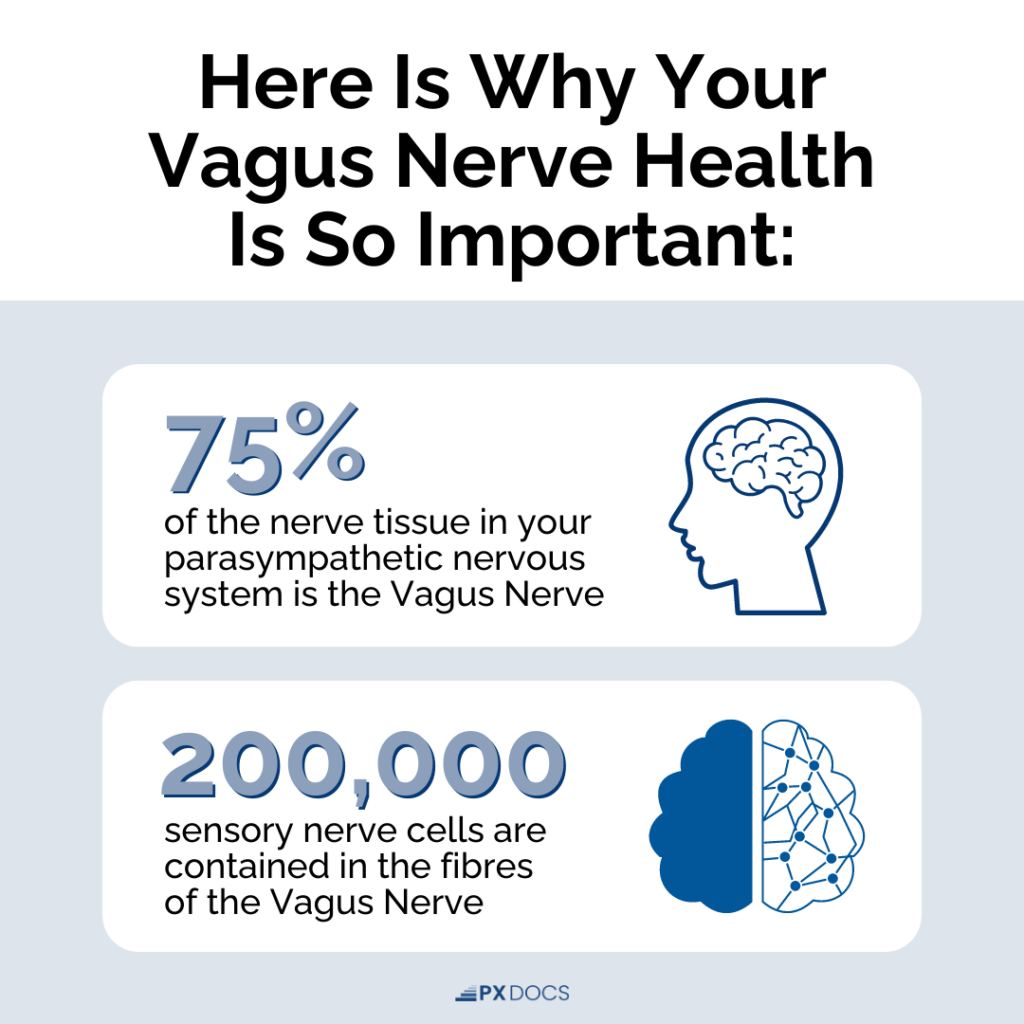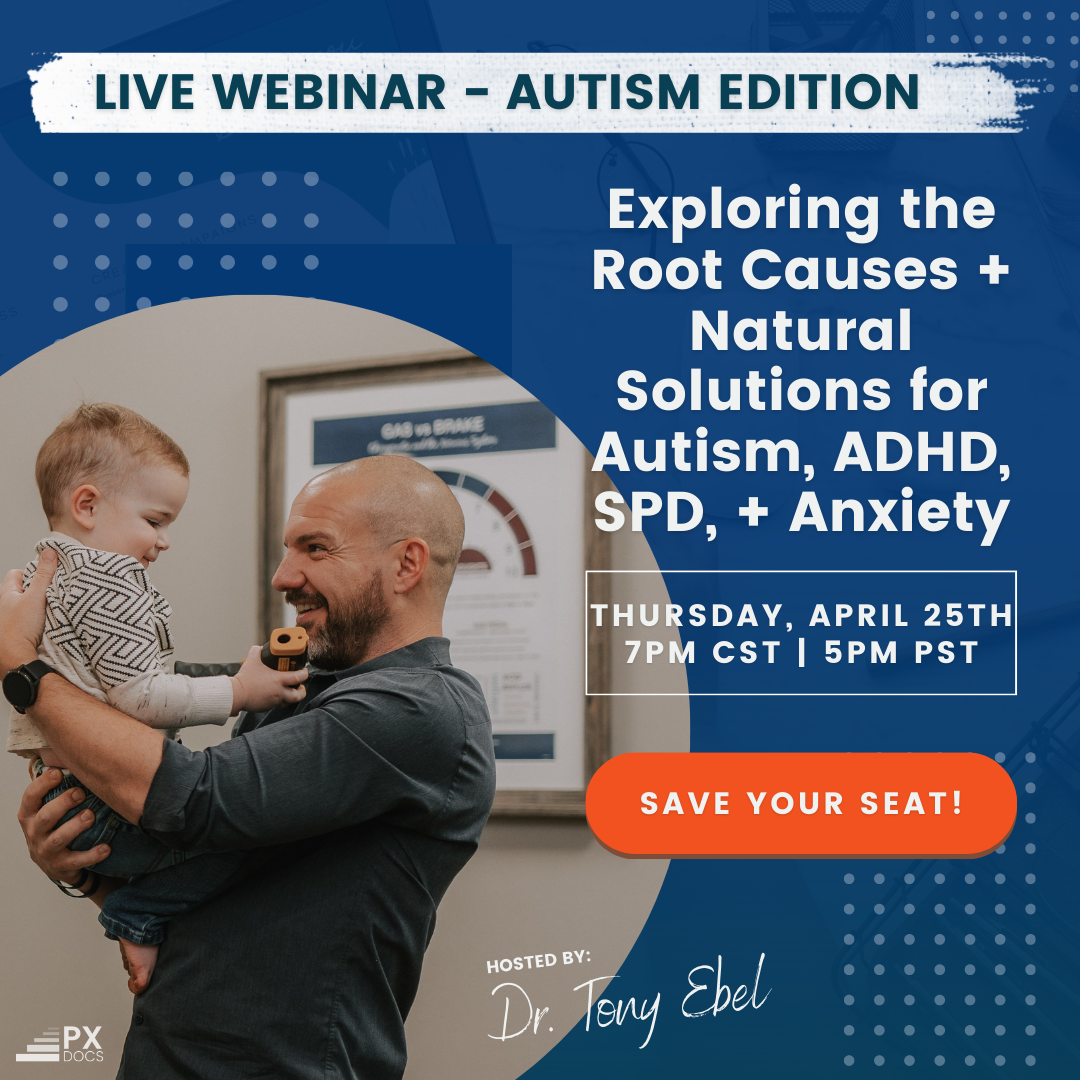Difficulty sleeping. Difficulty eating. Chronic, painful constipation. Anxiety and constant emotional challenges. Debilitating seizures and horrendous side effects from the medication.
Those are just some of the things then 17-year-old Francesca struggled with as a result of a Vagus Nerve that just simply was not working right.
Francesca came to our clinic for care as part of our Neurological Intensive Care Program in April of 2021, and honestly, her life was hanging on by a thread. Between the seizures, eating disorder, and chronic gut and immune issues that plagued her everyday life, to say she was struggling would be a massive understatement.
Her seizures had begun all the way back in 2011, and after a decade of working with various neurologists and trying nearly every seizure medication out there, things were getting markedly worse, not better.
But everything changed for Francesca and her family on that first day of our intensive care program when we found that literally each one of her health challenges could be connected to just one particular issue – her Vagus Nerve.
There is no more powerful and essential nerve in the entire human body than the Vagus Nerve. While the Vagus Nerve is capable of giving us so much health and well-being when it’s working correctly, it can be the cause of many struggles and health challenges when not working correctly.
Thankfully as you’ll see towards the end of this article, in just a few weeks, we were able to get Francesca’s Vagus Nerve back working at full force again! Chiropractic adjustments and a fully functioning Vagus Nerve wholly and quickly changed her life.
Be sure to watch Francesca’s Case Study Review video below to get the full story on the power of the Vagus Nerve.
What is the Vagus Nerve?
The Vagus Nerve is one of the longest, most intricate, and most important nerves in the entire body. The Vagus Nerve has long been given the nickname “wandering nerve” because it originates from the brainstem and upper neck area and makes its way down into the thorax to regulate and control vital functions such as breathing, heart rate, and digestion.
The Vagus Nerve has also been referred to as the “rest and digest” nerve because we’ve long since known the crucial role it plays in those functions.
The Vagus Nerve is also known as the 10th cranial nerve, or cranial nerve X. What makes the Vagus Nerve so unique is that it is primarily parasympathetic in its function, meaning it’s essential in helping our nervous system slow down, relax, regulate, focus, sleep, and so forth.
Additionally, the Vagus Nerve is almost entirely sensory in nature, meaning it functions like a big set of satellites constantly reporting to the brain and central nervous system what is happening in both our internal and external environments.
Due to its location and function, we know that the Vagus Nerve, therefore, is easily injured via birth trauma and is the #1 player in a chronic condition called dysautonomia, which will be discussed later on with other Vagus Nerve Disorders.
Why is Vagus Nerve Health Important?

But today, we now know the Vagus Nerve does so much more! The Vagus Nerve is vitally responsible for the following functions:
- Sensory – from the eyes, ears, throat, tongue, heart, lungs, and abdomen
- Motor – provides movement functions for the muscles in the neck and throat responsible for swallowing and speech
- Parasympathetic – responsible for digestive motility, respiration, and heart rate functioning
- Immune – helps regulate and reduce inflammation
- Social + Emotional – helps regulate our social and emotional regulation
There is not a single aspect of what the Vagus Nerve does that is not vital to a child’s health, but we really want to draw your focus to those last three (3) bullet points as they are the elements of vagus nerve function that not even most medical neurologists and traditional doctors are aware of, yet we know that those are the things that truly the vast majority of kids struggle with.
As the Vagus Nerve becomes more popular and prominent in the adult space with helping to manage our stress and mental performance with things like meditation and deep breathing, it’s much more important to recognize the role the Vagus Nerve can play in nearly every single aspect of pediatric and childhood health!
More than 1 in 4 children in the US have a chronic health condition, and many experts consider that math to be lighter and lower than what is happening today.
What’s worse is that so many pediatricians continue to dismiss common childhood challenges such as colic, ear infections, and constipation as “normal” and things that kids will “grow out of” over time instead of recognizing the link to the Vagus Nerve. But as this “Perfect Storm” article will take you through, that is not likely the case.
So, in summary, whether your child is struggling with digestive issues, speech disorders or apraxia, immune challenges, sensory processing disorder, ADHD, anxiety, autism, and especially seizures… ensuring that their Vagus Nerve is being stimulated and functioning at its optimal level is perhaps the most critical aspect of their healing plan to figure out.
How to Care for the Vagus Nerve with Neurologically-Focused Chiropractic Care
It is an exciting time in healthcare and online communities because knowledge and information about how powerful and vital the Vagus Nerve is are showing up everywhere!
But one thing missing from all the incredible articles on the Vagus Nerve, such as this one from Cleveland Clinic, when discussing how to stimulate your Vagus Nerve with things like meditation, massage, and deep breathing… is how potent and effective a neurologically-focused chiropractic adjustment can be for the Vagus Nerve!
Francesca’s case is proof of this! Like most kids and cases who ultimately make their way into a Pediatric Chiropractic office, they had already tried everything – medications, diet changes, detoxes, supplements, essential oils, talk therapy, breathing, meditation, you name it.
So while nothing we’ll ever write and share on this platform will dismiss excellent life-saving interventions or traditional medicine or the incredible health benefits of things like nutrition and natural health interventions… we will continue to make the case that the real missing piece of healthcare is activating and stimulating the Vagus Nerve with neurologically-focused chiropractic adjustments.
To get the full understanding of the role the Vagus Nerve plays in health challenges of all sorts, watch this short Case Study + Scan Review video all about the story of Francesca and how we were able to repair her Vagus Nerve!
How to Get Your Child (or yourself) Drug-Free Help
The first step you want to take is getting your child (or yourself) booked for a set of the INSiGHT Neurological Scans shown and discussed in the Case Study Review video, and simply find out if subluxation and dysautonomia are the issues.
These scans only take 15-30 minutes to complete and are packed full of incredible information that you won’t find anywhere else!
Our trained and ready network of PX Docs utilizes this incredible technology. Also, we use the same incredible 5-Step Clinical Process to assess the health and function of the Vagus Nerve and the autonomic nervous system as a whole.
To schedule your child’s appointment, simply visit the PX Docs Directory right away and reach out to your local practice through our website!






